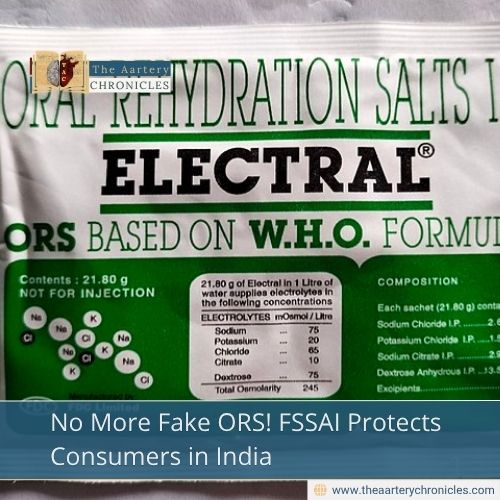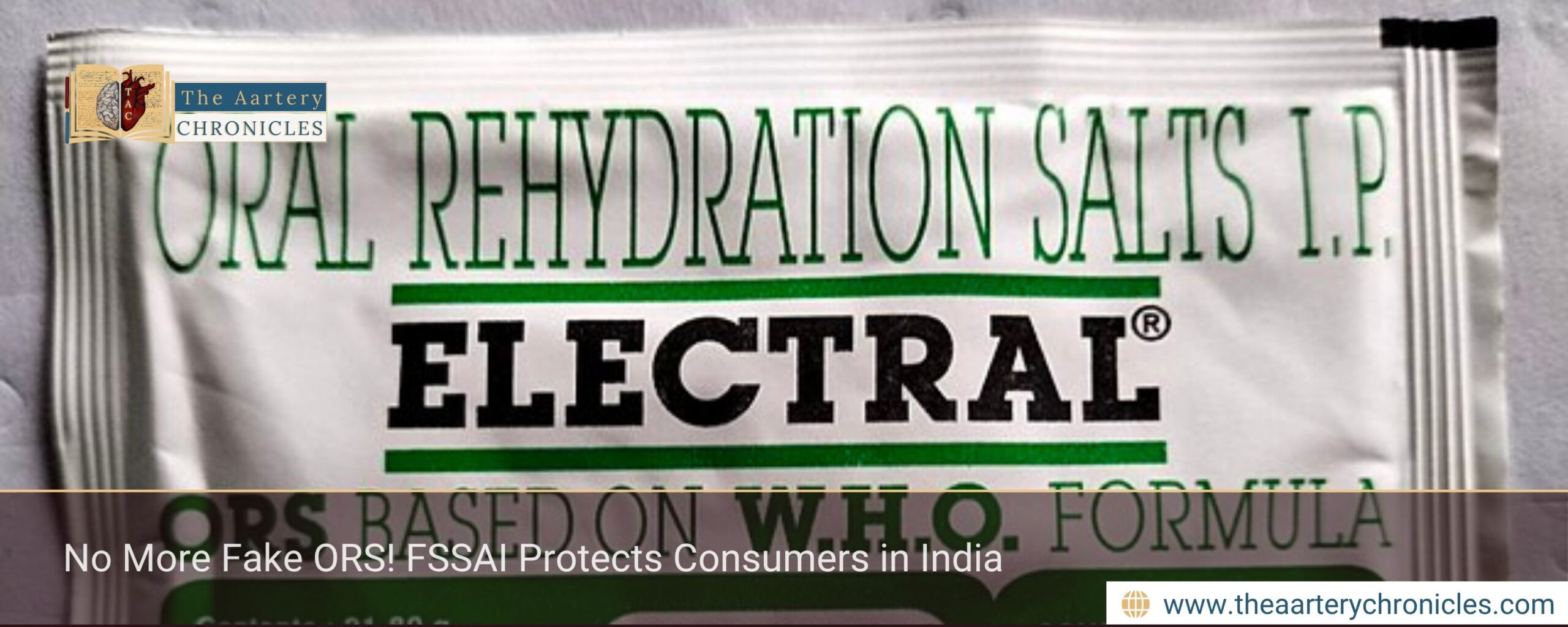

No More Fake ORS! FSSAI Protects Consumers in India
In a major step to protect consumers, the Food Safety and Standards Authority of India (FSSAI) has officially banned the use of the term “ORS” (Oral Rehydration Salts) on any beverage or food product that does not match World Health Organization (WHO) formulation standards. The order, issued on October 15, 2025, comes after years of advocacy by Hyderabad-based paediatrician Dr. Sivaranjani Santosh, who campaigned against companies falsely branding sweetened drinks as medical-grade ORS solutions.
Why the Ban Was Necessary
The FSSAI’s clarification states that using the word “ORS” on sugary or fruit-based beverages misleads consumers and violates the Food Safety and Standards Act (FSSA), 2006. According to the authority, such labels create false and deceptive impressions about the product’s medical effectiveness in preventing or treating dehydration.
Previously, a few manufacturers had received temporary approvals to use “ORS” in their product names, provided they carried disclaimers. However, these permissions have now been completely withdrawn. The new directive makes it clear: only formulations that strictly follow WHO-approved ORS composition can use the label.
What Makes a True ORS?
The WHO-recommended Oral Rehydration Solution (ORS) is a precise medical formulation designed to treat dehydration caused by diarrhoea, vomiting, or heat. It contains:
- 2.6 g of sodium chloride
- 1.5 g of potassium chloride
- 2.9 g of sodium citrate
- 13.5 g of glucose per litre of clean water
These balanced electrolytes and glucose help the body absorb water efficiently. In contrast, many sweetened “energy” or “fruit” drinks that claim to be ORS contain excess sugar and incorrect salt proportions, which can worsen dehydration instead of relieving it.
The Journey Behind the Decision
This regulatory change is the result of an eight-year legal and public health campaign led by Dr. Sivaranjani Santosh, a well-known Hyderabad paediatrician. In 2022, she filed a Public Interest Litigation (PIL) in the Telangana High Court, revealing that several companies were selling sugary beverages as ORS, despite failing to meet WHO standards.
The High Court’s initial intervention in April 2022 prompted FSSAI to impose temporary restrictions. However, after industry appeals, the regulator had allowed limited relaxations. Now, with the new order, those relaxations have been completely revoked, ensuring full consumer protection.
Doctor’s Reaction: A Victory for Consumer Health
Reacting to the new FSSAI order, Dr. Sivaranjani expressed her gratitude in a video message on social media:
“We have won it. No misleading label with ORS can now be sold. It was an eight-year fight against false marketing of high-sugar drinks. I thank all the supporters, children, teachers, journalists, and advocates who stood by me.”
Her sustained effort has been widely praised by health experts and parents alike, marking a significant victory in India’s ongoing battle against misleading health claims on food and beverage products.
Conclusion
This decision by the FSSAI is expected to curb deceptive marketing practices and protect consumers, especially children, from the misuse of the term “ORS.” It also reinforces the importance of scientific accuracy in product labeling, ensuring that only medically valid formulations are trusted in the treatment of dehydration.
The FSSAI ban on ORS labels on sugary beverages ensures that only WHO-standard formulations can carry the term “ORS,” safeguarding public health and preventing false medical claims.
Source: Inputs from various media Sources
I’m a pharmacist with a strong background in health sciences. I hold a BSc from Delhi University and a pharmacy degree from PDM University. I write articles and daily health news while interviewing doctors to bring you the latest insights. In my free time, you’ll find me at the gym or lost in a sci-fi novel.
- Priya Bairagi
- Health News and Updates,People Forum
- 18 October 2025
- 15:00








